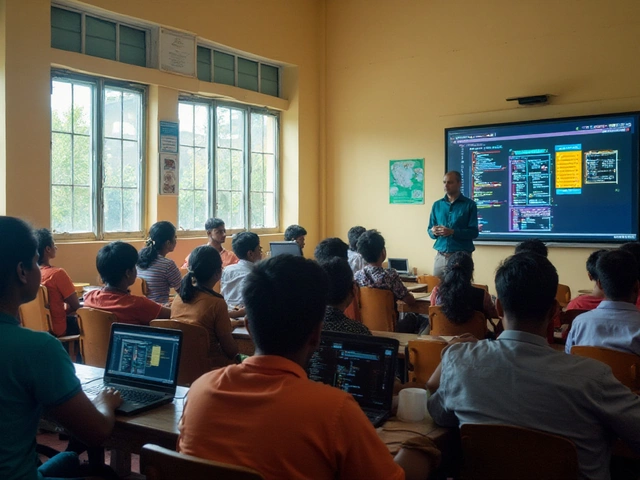Coding Careers: Real Steps to Start, Grow, and Earn in 2025
Thinking about a job that lets you work from anywhere and pay well? Coding fits that bill. You don’t need a PhD – just a clear path and the right skills. Below you’ll find the exact moves that turn curiosity into a paycheck.
First, decide which side of web development feels right. Front‑end work focuses on what users see – HTML, CSS, JavaScript, and design tools. Back‑end work deals with servers, databases, and logic. If you’re torn, try a short project that uses both, like building a simple blog. That will show you where the fun lies.
Core Skills You Must Master
Regardless of the track, these basics are non‑negotiable:
- HTML & CSS – the skeleton and skin of every website. Mastering layout, flexbox, and grid gives you instant results.
- JavaScript – adds interactivity. Focus on ES6+, fetch API, and a modern framework like React or Vue.
- Version control – Git is the industry standard. Learn to push, pull, and resolve conflicts.
- Responsive design – sites must look good on phones and desktops. Test with Chrome DevTools.
Once you’re comfortable, add a back‑end language (Node.js, Python, or PHP) and a database (MySQL or MongoDB). Building a full‑stack app, even a tiny one, proves you can handle both sides.
How to Get Paid Fast
Freelancing is the quickest way to see money coming in. The Freelance Web Developer Hourly Rate Guide 2025 shows rates from $20/hr for beginners to $150/hr for specialists. To land gigs:
- Create a simple portfolio site that showcases two to three projects.
- Sign up on platforms like Upwork, Fiverr, or local job boards.
- Set a clear hourly or project rate based on your skill level. Don’t undervalue yourself – use the guide as a benchmark.
- Ask for testimonials after each job. Social proof boosts future rates.
If you prefer steady income, look for entry‑level web development roles. According to the Entry Level IT Jobs article, fresh developers can earn ₹3‑5 Lakhs per year in India, with remote options paying even more.
Another fast lane is vocational training. Programs like the Best Plumbing Course model show that short, hands‑on courses can lead to jobs within months. Look for accredited coding bootcamps or government‑run schemes that offer a certificate and job placement help.
Don’t forget the power of certifications. A Google Web Developer badge or a free HTML/CSS certificate from reputable sites adds credibility and can push your hourly rate up by 10‑15%.
Finally, track your earnings. The Average Freelance Web Developer Salary 2025 tells you to record every invoice, then quarterly compare your rates to market averages. Adjust when you add new skills or finish a successful project.
In short, start with the core web trio (HTML, CSS, JavaScript), build a portfolio, choose a payment route (freelance or entry‑level job), and keep learning. Every new skill lifts your earning potential and opens doors to bigger projects. Your coding career is a series of small wins – stack them together and watch the income grow.

The tech industry offers unique opportunities for individuals interested in becoming full-stack developers without a formal degree. By leveraging coding bootcamps, online courses, and self-teaching methods, aspiring developers can acquire the necessary skills and build a robust portfolio. Networking, projects, and staying updated with industry trends further enhance one's employability. This article explores various routes to enter the full-stack development field and succeed in a tech career without a traditional educational background.
Continue Reading





